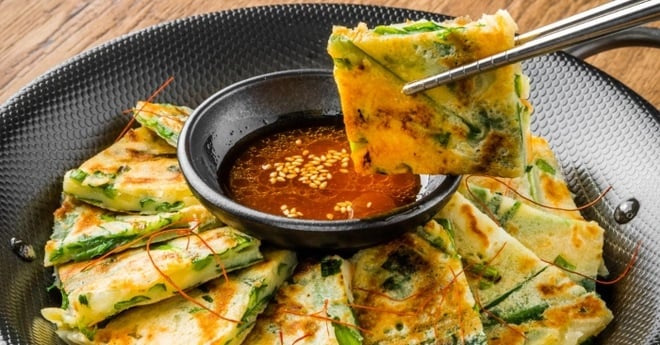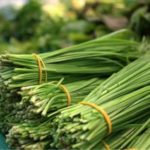Chives: A Culinary Herb with Medicinal Benefits
Chives are a familiar vegetable, but did you know they also pack a punch when it comes to health benefits? In traditional East Asian medicine, chives are believed to possess medicinal properties. Specifically, raw chive leaves are considered warming, while cooked chives are mildly warming and spicy. They are thought to improve digestion, promote blood circulation, and detoxify the body. Eating chives can help treat colds, coughs caused by cold, toothaches, and even support diabetes management.

Chive leaves are rich in vitamins and roughage, aiding digestion, relieving constipation, and preventing colorectal cancer.
Chives are also believed to improve blood stasis, enhance blood circulation, and detoxify the body. They are a great source of vitamin A, which can help nourish the skin, improve complexion, and promote eye health. Regular consumption of chive leaves may also boost immunity and reduce the risk of flu, colds, and asthma.
During winter, people in Japan and China particularly enjoy eating chive leaves as they are thought to warm the body, ward off colds, boost energy levels, improve blood circulation, and prevent a deficiency of yang energy.
Chive leaves are also beneficial for liver health due to the presence of sulfides and their distinctive aroma, which helps open the liver meridians.
Additionally, chives contain alliums, compounds that may prevent and support the treatment of certain cancers. In a study of 285 women, researchers found that consuming alliaceous vegetables, such as chive leaves, reduced the risk of developing breast cancer.
Chives are a rich source of vitamin K, which is essential for bone health, helping to prevent and treat osteoporosis.
The Benefits of Chive Leaves: A Word of Caution
– It is important not to overeat chive leaves as it may cause stomach discomfort, indigestion, or diarrhea. A controlled intake of 100-200g per meal is recommended.
– Individuals with yin deficiency and excess fire symptoms (including irritability, flushed cheeks, dry mouth without thirst, red tongue, and night sweats), those with ulcers and eye diseases, and people prone to allergies should refrain from consuming chive leaves.
– Avoid consuming leftover chive dishes that have been kept overnight.
– When cooking with chives, it is important to chop them finely and stir-fry over high heat, working quickly. Prolonged cooking can cause the chives to disintegrate, affecting the taste and causing the sulfides in the chives to deteriorate.
Here’s a delicious recipe for chive omelet:
– Crack 4 eggs into a bowl. Peel and slice the shallots thinly.
– Pluck and discard any yellow or wilted chive leaves, then wash the remaining chives and cut them into segments approximately 2 finger lengths.

A tasty and nutritious chive omelet
– Beat the eggs with a pair of chopsticks, then season with half a tablespoon of fish sauce and one chopped chili. Mix well, and add the chive segments, stirring to distribute evenly.
– Heat a tablespoon of cooking oil in a pan. When the oil is hot, add the sliced shallots and fry until fragrant and slightly golden. Pour in the egg and chive mixture, and use a spatula and spoon to spread the chives evenly across the surface.
– Cook the omelet over low heat for 3-5 minutes until the eggs are set. Then, flip the omelet and cook for an additional 2-3 minutes.




































